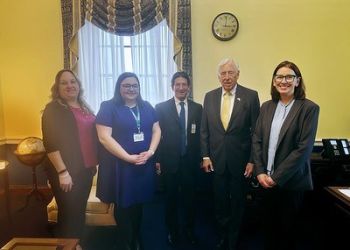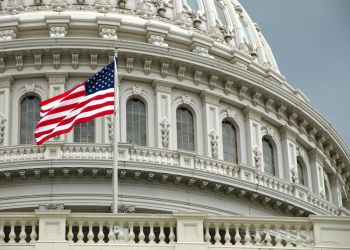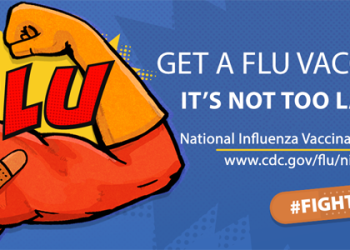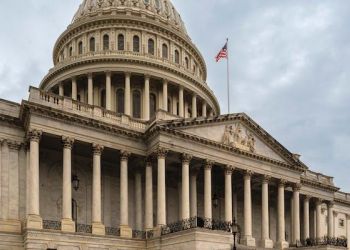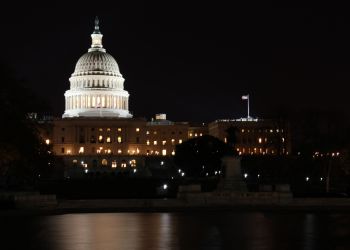Last week, on Wednesday, February 1, the House Energy and Commerce (E&C) Subcommittee on Oversight and Investigations held its first hearing on COVID-19 origins titled, “Challenges and Opportunities to Investigating the Origins of Pandemics and Other Biological Events.” Five witnesses testified at the hearing:
- Karen L. Howard, Ph.D., Director of Science and Technology Assessment Science, Technology Assessment and Analytics (STAA),
- Tom Inglesby, MD, Director of the Center for Health Security at John Hopkins Bloomberg School of Public Health,
- Asha M. George, DrPH, Executive Director of the Bipartisan Commission on Biodefense,
- Gerald Parker, DVM, Ph.D., Associate Dean of the College of Veterinary Medicine & Biomedical Services, and
- Michael Imperiale, Ph.D., Arther F. Thurnau Professor at the University of Michigan Medical School.
In their opening statements, both full Committee Chair Cathy Rodgers (R-WA) and Subcommittee Chair Morgan Griffith (R-VA) outlined harms caused by the COVID-19 pandemic, and Chair Rodgers called for all elected officials to be unified in investigating the origins of the COVID-19 pandemic to be better prepared for future pandemics. Chair Griffith referenced the Government Accountability Office (GAO) technical assessment which called for a coordinated approach across the government, academia, and private sector to be fully prepared for the next outbreak.
In response to a June 2021 request from Republican members of the Energy and Commerce Committee, the GAO reviewed the effectiveness of pandemic preparedness technologies, particularly in determining a pandemic’s likely origin, and released a report concurrently with the hearing. GAO identified several key challenges researchers face in investigating a pandemic’s origin:
- Technological challenges,
- Limited ability to access samples and genetic sequence data,
- A lack of standardized process for submitting, accessing, and using genetic sequence data, and
- A lack of sufficient and skilled interdisciplinary workforce.
The GAO identified five policy options that may help address challenges in pandemic origin investigations:
- Establish multilateral agreements for accessing and sharing,
- Develop standardized processes for genetic sequence database use,
- Improve current, or develop new, genetic sequence database tools,
- Encourage the development, retention, and growth of a workforce with the critical skills needed for pandemic origin investigations,
- Augment or develop a national strategy to better coordinate and collaborate domestically and internationally on pandemic origin investigations.
Dr. Howard from GAO highlighted that by conducting timely and effective pandemic-origin investigations, policymakers and researchers can learn more about how these diseases arise and how to reduce high-risk activities to prevent future outbreaks or limit their impact. Ranking Member Frank Pallone (D-NJ) asked Dr. Howard what tools Congress could provide research communities to ensure the health and well-being of the public. Dr. Howard responded that developing better database interfaces, standardizing processes of databases more efficiently, incentivizing the retention and training of the workforce, and developing a national strategy would all be helpful.
All witnesses showed full support for the GAO recommendations and urged Congress to invest in scientific research, build an interdisciplinary workforce, and create a national strategy. Both Mr. Inglesby and Dr. Parker mentioned that the U.S. does not have any international agreements, protocols, or guidelines to be able to identify the source of future pandemics. They both emphasized the importance of building this capacity to protect the health, national security, and bioeconomy of the nation. Dr. George stated that the Bipartisan Commission on Biodefense released a blueprint in 2015, warning the nation was vulnerable to biological threats and offered numerous recommendations to improve preparedness. Although Congress has taken some action to address these recommendations by establishing requirements for a national biodefense strategy, an annual biodefense budgetary crosscut, and biological intelligence management, Dr. George said much remains to be done, such as implementing a robust biological attribution framework, to clearly define roles, responsibilities, and requirements.
In his questioning, Chair Griffith asked the genetic differences between an intentionally modified pathogen and a pathogen of natural origin, and if any of the witnesses were aware of intentional modifications occurring at the Wuhan Laboratory in China. All witnesses stated they were not familiar with the work occurring within that specific laboratory. In a follow-up, Chair Rodgers asked if science exists to know from looking at the genetic sequence whether a pandemic had a natural origin or came from a laboratory. There was a consensus among the witnesses that scientists cannot determine with certainty the origin of whether a pandemic was natural or occurred at a laboratory solely from genetic sequencing. Dr. Imperiale stated that as of right now everything points towards a natural origin for COVID-19, but much more needs to be investigated to determine the origins of the virus. He, along with Ranking Member Pallone, stressed the importance of investing in a strong public health infrastructure to be able to better respond and prevent the next pandemic which would require coordination between the federal, state, and local levels.
Following the hearing, the Republican members of the subcommittee sent letters to the National Institutions of Health (NIH) and EcoHealth Alliance requesting for information and documents related to research done at the Wuhan Institute of Virology (WIV).



